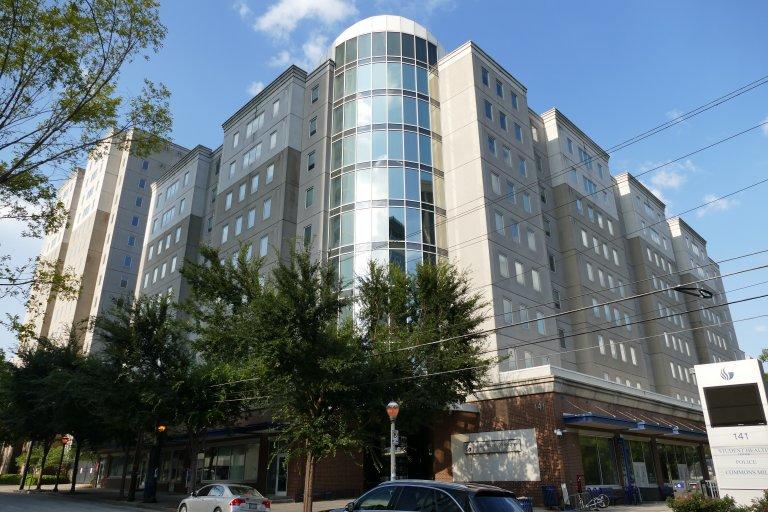
Caption
The residential housing at University Commons near Georgia State is operated by Corvias, a company that wrote the state Board of Regents in May that any plans to reduce the number of students in pursuit of COVID-19 safety would likely violate its 2015 contract.
Credit: John McCosh

